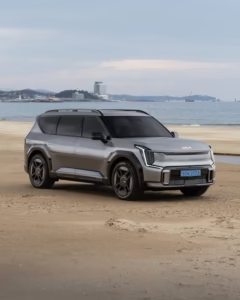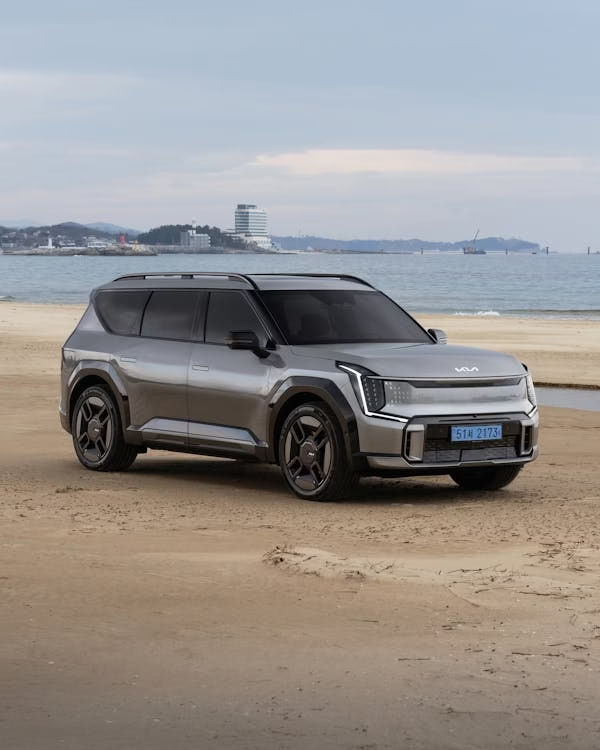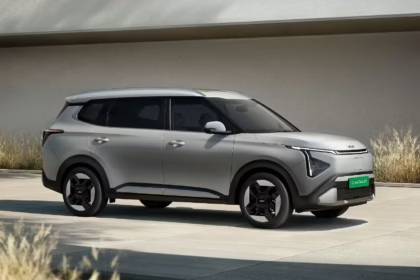Introduction
India is poised for an electric cars revolution, and it’s no longer a question of premium sedans or luxury SUVs alone. India’s electric car industry has witnessed exponential growth in recent years, and this is only expected to pick up steam further in 2025 and beyond. One of the most vital segments fueling this change is the compact electric cars segment. Why? Because compact vehicles are the lifeblood of Indian cities.
They’re just small enough to squeeze into cramped alleys and congested streets, yet roomy enough for daily family usage. Most importantly, they’re priced in a way that resonates with the majority of Indian car buyers, making electric mobility not only a premium aspiration but an everyday choice.
In this article, we present the seven most-awaited small electric cars that will be launched soon in the Indian market. From the familiar names of Tata and Mahindra to international giants like Hyundai and Renault, these new launches promise the right combination of intelligent design, enhanced range, and low cost. Let’s have a closer glance at what is in store for you!

What is a Compact Electric Car?
In the constantly changing landscape of electric vehicles, “compact electric cars” is an automobile category created with an emphasis on urban mobility, efficient design, and affordability. These aren’t your top-of-the-line, extended-range cruisers — they’re clever, sensible, and made for the daily demands of city commuters.
Mini EVs generally exist in the guise of hatchbacks, micro SUVs, or small crossovers. They are designed for space-saving purposes, with just enough capacity for 4–5 people and modest boot capacity — ideal for driving in traffic, parking in tight spaces, and performing short runs.
One of the key characteristics of a compact electric car is its length, usually below 4 meters. This length category qualifies it for some tax incentives in India and maintains affordable manufacturing and buying prices. Most compact electric cars provide:
- A real-world range of 180 to 350 kilometers
- Small to mid-size battery packs (15–30 kWh)
- Moderate charging times with fast-charging support as an option
- FWD drivetrain for simplicity and efficiency
Who Are They For?
Compact electric cars are suited for:
- Morning office or school drop-offs
- Short-to-medium distance urban travel
- Cost-conscious first-time buyers of electric cars
- Fleet owners and car-sharing operations
- Green-conscious families needing a second car
Simply put, compact electric cars hit the sweet spot between size, affordability, and usability and are the perfect gateway to electric mobility for millions of Indian motorists.
Top 7 Upcoming Compact Electric Cars in India
As the electric vehicle wave gains momentum, these seven compact electric cars are geared up to change city driving in India. They offer the perfect combination of affordability, innovation, and daily usability.
- Anticipated Launch: Late 2025
- Anticipated Price: Rs. 10 – Rs. 12 lakh (ex-showroom)
- Range: ~300–350 km (claimed)
- Battery: 25–30 kWh, Tata Ziptron tech
- Design Highlights: Rugged micro-SUV design, split headlamps, LED DRLs
- Distinctive Features: Multi-drive modes, regen braking levels, big infotainment screen, digital cluster
Tata Motors’ highly anticipated electric cars, Punch EV, will provide SUV styling in a compact package with real-world EV practicality. It’s likely to arrive in standard and long-range trim.
- Mahindra eKUV100
- Expected Launch: Late 2024 – Early 2025
- Expected Price: Rs. 8.5 – Rs. 10 lakh
- Range: ~250–300 km
- Battery: Around 20–25 kWh
- Design Highlights: Unobtrusive styling, SUV-ish proportions in a compact package
- Unique Features: Telematics, remote diagnostics, connected tech
Mahindra’s eKUV100 will be the cheapest electric SUV in India. It is expected to be simple but very functional and suitable for urban customers and fleet operators.
- Maruti Suzuki eVX Compact Version
- Anticipated Launch: Mid to Late 2025
- Anticipated Price: Rs. 11 – Rs. 13 lakh
- Range: ~300 km
- Battery: Expected 25–30 kWh
- Design Highlights: Compact crossover with SUV design elements
- Unique Features: Suzuki-Toyota co-developed platform, high efficiency, SmartPlay interface
While the original eVX is a mid-size SUV, this India-specific compact version will bring Maruti’s first EV to the masses. It will be practical, efficient, and trustworthy—the Maruti way.
- Hyundai Casper EV (Ioniq Mini)
- Expected Launch: Late 2025
- Expected Price: Rs. 12 – Rs. 14 lakh
- Range: 250–300 km
- Battery: ~26–30 kWh
- Design Highlights: Quirky, retro-compact urban SUV styling
- Unique Features: Sunroof, premium cabin, ADAS-ready platform
Carrying the Korean market’s DNA, this Hyundai EV promises to merge tech and style in a small package. It is ideal for urban youth and upscale urban customers.
- MG Comet EV 5-Door Version
- Expected Launch: Mid-2025
- Expected Price: Rs. 8.5 – Rs. 9.5 lakh
- Range: ~230 km
- Battery: 17.3 kWh LFP
- Design Highlights: Simple boxy look, bigger cabin
- Distinctive Features: Dual-screen dashboard, smart tech, rear doors to enhance usability
MG is enhancing the Comet electric cars usability by incorporating two additional doors while still keeping its DNA smart city.
- Citroën eC3 Aircross Compact
- Launch Date: Early 2026
- Price Range: Rs. 9 – Rs. 11 lakh
- Range: ~280–320 km
- Battery: 30 kWh
- Design Highlights: Streamlined European look, upright posture, high ground clearance
- Unique Features: Eco-driving feedback, spacious cabin, quick-charging
Citroën will also introduce a reduced version of the eC3 Aircross for city dwellers. I look forward to a robust design language with a European twist at an affordable price.
- Renault Kwid EV (City K-ZE)
- Expected Launch: Late 2025
- Expected Price: Rs. 7.5 – Rs. 9 lakh
- Range: ~200–250 km
- Battery: 20–26 kWh
- Design Highlights: Sporty, compact design on the Kwid
- Unique Features: Already proven all over the world, touchscreen infotainment, rearview camera
Already launched in China and other international markets, the City K-ZE will be Renault’s affordable EV for India on the ever-trendy, electrified Kwid platform.
Key Features to Watch Out For
As India’s electric cars market becomes more mature, future compact electric vehicles are no longer merely about their green credentials — they’re also raising the bar in technology, safety, and practicality for everyday use. These are the key features you should be looking out for when considering such future compact electric cars:
DC Fast Charging Feature
Those were the days when electric cars used to be charged in 8-10 hours. The latest crop of compact electric cars is likely to provide DC fast charging compatibility, enabling you to charge up to 80% in less than an hour. A few may even have multiple modes of charging, with portable chargers for extra convenience.
Connected Technology & Infotainment
Smart is the new normal. The majority of future models will include digital instrument clusters, touchscreen infotainment systems, smartphone integration (Android Auto & Apple CarPlay), and even connected car features such as vehicle tracking, OTA updates, and remote climate control — all squeezed into a diminutive cabin.
Safety Features
Safety is no longer a luxury—it’s a necessity. These small electric cars will be equipped with dual airbags, ABS with EBD, rear parking sensors or cameras, and, in some models, Electronic Stability Control (ESC). Later, a couple of higher-end variants may also offer advanced driver-assist tech (ADAS).
Boot Space & Rear Seat Comfort
Bigger doesn’t have to mean bulkier. Electric car manufacturers are redesigning cabin interiors to maximize space with flat floors, fold-flat rear seats, and clever storage solutions. The Punch EV and MG Comet 5-door are likely to have adequate boot space and unexpectedly spacious rear seating, including for taller occupants.
Potential Challenges
Though the new compact electric cars have a lot of promise, there are a couple of hurdles potential customers ought to be aware of before leaping:
Delays in Launch
Most of these models remain in the concept or testing stages. Manufacturers tend to delay timelines due to supply chain, regulatory, or sudden design change reasons. Therefore, the real launch dates may slide beyond initial expectations.
Small Service Network
While it is getting better, the EV support ecosystem in India is in the nascent stages, particularly beyond metro cities. Brands such as Citroën and Renault have fewer points of contact than Tata or Maruti, which might affect post-purchase convenience.
Price vs Performance Trade-Offs
Although prices will be competitive, models will have to sacrifice features, range, or battery size to remain affordable. Customers will have to decide what is more important carefully — initial cost savings, ongoing expense, or feature-laden performance.
Final Verdict
If you’re planning to switch to an electric car but are waiting for the right model, now is the time to keep your eyes on the compact electric cars segment. The upcoming lineup promises more than just clean mobility — it brings smarter tech, better driving range, and real-world practicality tailored for Indian roads.
These future small EVs are particularly well-suited for:
- New EV buyers are seeking a low-cost entry into electrification.
- City families need a convenient second car for urban driving.
- Fleet operators and ride-share companies that prioritize cheap running costs and simple maneuverability.
Best All-Rounder Pick:
If you desire a well-balanced blend of style, performance, features, and range, the Tata Punch EV emerges. With its SUV-like posture, tested Ziptron technology, and projected 300+ km range, it’s turning out to be the most practical compact EV in its category.
Best Value-for-Money:
For those with limited means or fleet operators searching for a thrifty city runner, the Mahindra eKUV100 is a serious contender. With its targeted price below Rs. 10 lakh and utilitarian range of 250–300 km, it may become India’s most affordable electric SUV.
In short, whether you’re motivated by price, tech, design, or practicality, there’s a thrilling compact EV just on the horizon — and holding out for a few more months could land you a lot more car for your cash.
FAQs
Q: What are the most budget-friendly compact electric cars that will be launching soon?
The Mahindra eKUV100 will be the most budget-friendly, priced below Rs. 10 lakh.
Q: Whose price will be the highest for a compact EV?
The Tata Punch EV will be the highest at over 300 km claimed range.
Q: Are these vehicles good for long road journeys?
Most are best suited for urban use, although types such as the Punch EV can manage short highway travel.
Q: Which one of these will hit the market first?
The Mahindra eKUV100 will hit the market first by late 2024.





